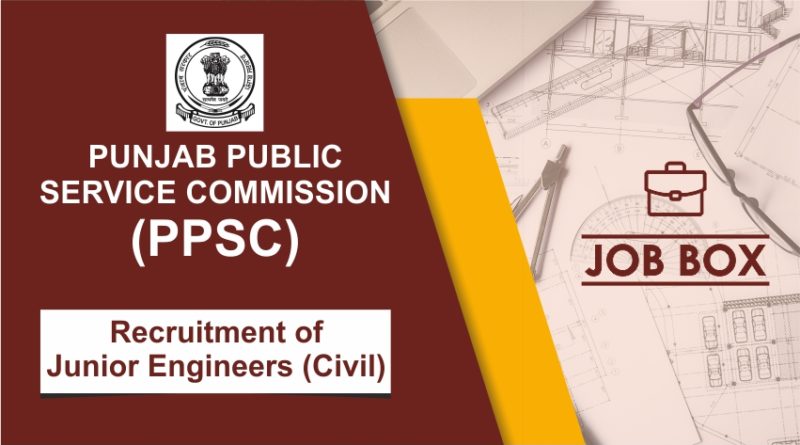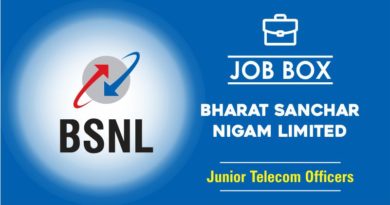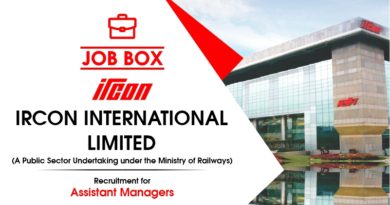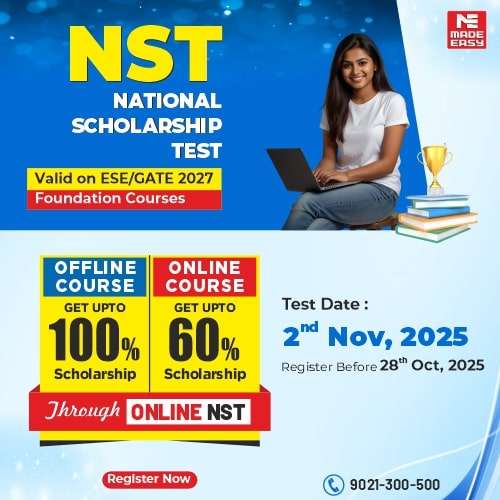PPSC Recruitment 2021 for Junior Civil Engineers
PUNJAB PUBLIC SERVICE COMMISSION
(PPSC)
Advt. No. 1
Recruitment of Junior Engineers (Civil)
PPSC Recruitment: The Punjab Public Service Commission (PPSC) has been established under Article 315 of the Constitution of India, with the basic purpose of recruiting officials in various departments of the Government as per the requisitions sent by the Government in this regard from time to time.
The PPSC invites Online Application Forms from eligible candidates for recruitment to the posts of Junior Engineers (Civil) in the Department of Water Resource, Punjab.
PPSC Recruitment Details
| Sl. No | Name of the Post | No. of Posts |
| 1. | Junior Engineers (Civil) | 585 |
Reservation of Posts
| Category Code | Category | No. of Posts | Out of Total posts, posts reserved for Women |
| 71 | General | 223 | 63 |
| 72/73 | Ex-Serviceman/LDESM | 46 | 22 |
| 74 | Freedom Fighters of Punjab | 06 | 02 |
| 75 | Sports Persons, Punjab | 12 | 06 |
| 76 | Persons with Disability Hard of Hearing | 15 | 07 |
| Locomotive Disability (One Leg, One Arms) | 12 | 05 | |
| 77 | Scheduled Castes (Others), Punjab | 57 | 23 |
| 78/79 | SC Ex-Serviceman/LDESM | 12 | – |
| 80 | SC Sports Persons, Punjab | 03 | – |
| 81 | Balmiki/Mazbhi Sikhs, Punjab | 58 | 23 |
| 84 | Balmiki/Mazbhi Sikhs Ex-Serviceman/LDESM | 03 | – |
| 85 | Backward Classes Punjab | 57 | 23 |
| 86/87 | Backward Classes Ex-Serviceman/LDESM Punjab | 12 | – |
| 88 | Economically Weaker Section, Punjab | 57 | 18 |
| Total | 585 | 192 | |
| Note* | 1. The number of posts may be increased or decreased by the Govt. at any time before the selection process is complete without giving any prior notice to the candidates. 2. The Punjab Civil Services (Reservation for women) Rules 2020 issued by the Department of Social Security that provides for 33% reservation for women is attached as Annexure-F with General Information for candidates. | ||
Essential Qualification for PPSC
- Should possess three years Diploma of Junior Engineer in Civil Engineering from a State Technical Education Board or from recognized University or Institution.
- The candidate possessing higher qualification in terms of degree/Masters in engineering is also eligible, provided he/she mandatory possess basic qualification in terms of diploma in Civil Engineering.
- Punjabi of Matric or its equivalent Standard.
- Provided further that where a ward of Defence Service Personnel, who is a bonafide resident of Punjab State, is appointed by direct appointment, he shall have to pass an examination of Punjabi Language equivalent to Matriculation Standard or he shall have to qualify a test conducted by the Language Wing of the Department of Education of Punjab Government within a period of two years from the date of his appointment. Provided further that where a War Hero, who has been discharged from defence services or paramilitary forces on account of disability suffered by him and his widow or dependent member of his family, is appointed under the instructions issued in this behalf by the Government, the person so appointed will not be required to possess aforesaid knowledge of Punjabi language.
Important Note: The candidates MUST possess the requisite qualification before or by 27/03/2021
Age Limit for PPSC
- Candidates should not be below 18 years and above 37 years of age as on 01.01.2021
- The Upper age limit may be relaxed up to 42 years for Scheduled Castes and Backward Classes of Punjab.
- Upper age limit may be relaxed up to 45 years for Punjab Govt. and its Board/Corporation/Commission and Authorities employees, all States/ Central Government employees.
- Ex-servicemen of Punjab Domicile shall be allowed to deduct the period of his service in the Armed Forces of Union from his actual age and if the resultant age does not exceed the maximum age limit prescribed for direct appointment to such a vacancy in the Service Rules concerned by more than three years, he shall be deemed to satisfy the condition regarding age limit.
- Upper age limit is also relaxable up to 42 years for Widows, Divorcees and certain other Categories of Women.
- Upper age limit is also relaxed up to 47 years for Persons with Disability of Punjab.
Selection Process
- The written competitive examination for the post will be scheduled tentatively in end of April 2021. The procedure for Competitive Examination for selection of candidates for the post of 585 posts of Junior Engineers (Civil) in the Department of Water Resource, Punjab is in following sequence:-
| Total Marks for Competitive Examination | 300 |
- The pattern for written exam comprising of 120 questions (@ 2.5 marks for each question and Time allotted (2 Hours) would be as below:
| Questions from the Subject | 100 | 250 marks |
| Questions from Logical Reasoning, Mental ability and General Knowledge | 20 | 50 marks |
- There will be negative marking (0.5 marks for each question) in the written examination for questions wrongly answered.
- after the answer key is put on the PPSC website (after written examination), candidates will be permitted to raise objections if any. Candidates will be given four days to deliberate before putting up objections.
- As per the instructions of Govt. of Punjab Department of Personnel issued vide its letter No. 12/152/2015-5PP2/720133/1 dated 28.03.2016, the selection for these posts will be finalized on the basis of written examination only.
- No interview shall be conducted for selection to these posts.
- No candidate shall be eligible to be appointed unless he/she obtains 45% marks in the competitive examination (read 40% for the candidates belonging to Schedules Caste of Punjab and Backward Classes of Punjab).
- Final result shall be prepared on the basis of the net marks obtained by the Candidates in the Written Competitive Examination.
Nationality
A candidate shall be a:
- Citizen of India; or
- Citizen of Nepal; or
- Subject of Bhutan; or
- Tibetan refugee who came over to India before the 1st January 1962, with the intention of permanently settling in India; or.
- A person of Indian origin who has migrated from Pakistan, Burma, Sri Lanka and East African countries of Kenya, Uganda and United Republic of Tanzania (formerly Tanganyika and Zanzibar) Zambia, Malawi, Zaire, Ethiopia and Vietnam with the intention of permanently settling in India;
Provided that a candidate belonging to categories (ii), (iii), (iv) and (v) shall be a person in whose favour a certificate of eligibility has been issued by the Government of Punjab in the Department of Home Affairs and Justice.
Application Process
The candidates can ONLY apply by filling Online Application Form, a link of which is available on the website of the Commission https://ppsc.gov.in No other mode of application will be accepted.
(a) The candidates are NOT REQUIRED to send the Hard Copy of the Online Application Form to the Office of Punjab Public Service Commission. However, the candidates must take out the hard copy in soft form or print out at the time of applying otherwise he/she will not be able to take out the copy at the later stage. He/she must retain the hard/soft copy of online application form along with all eligibility documents ready to be sent at a short notice to PPSC whenever required by PPSC.
(b) However, candidates applying under the Sports Category will send a hard copy of ‘On line Application Form’ along with Sports Gradation Certificate and other certificates related to sports to establish his eligibility under the sports category by 27/03/2021.
(c) Also, Persons with disabilities must submit the hardcopies of Online Application Form along with Disability Certificate and request for scribe, if any and other eligibility documents at the reception counter of PPSC by 27/03/2021 .For any assistance Persons with disabilities may contact Superintendent Examination: 0175-5014831, 0175-5014825.
(d) The following SELF ATTESTED CERTIFICATES shall be submitted by candidates when asked at short notice:
- Proof of Date of Birth: Certificate of Matriculation/Higher Secondary.
- Proof of having passed Punjabi Language.
- Relevant Degree and DMC Certificate.
- Reserved Category Certificate issued by the Competent Authority (If Applicable)
- If ESM, certificates/documents mentioning the following:-
- Date of Enrolment
- Date of Release/Discharge
- Reason of Release/ Discharge
- Certificate as proof of age relaxation claim. (If Applicable)
- Certificate as proof of fee concession (If Applicable)
- Proof of being Govt. Employee.
- Copy of Bank Challan (PPSSC Copy only).
(e) The Candidates SHALL sign the declaration on Page No. 2 of the print out of Online Application Form before submitting the same The Candidates SHALL sign the declaration on last page of the print out of Online Application Form before submitting the same.
Application and Examination Fee
The candidates are required to pay the Application fee as per Govt. Letter No. 10/20/2007 3PP3/97751/1 dated 17-9-2013 as mentioned below:-
| S. No | Name of Category | Online Application charges | Examination Fee | Total |
|---|---|---|---|---|
| 1. | Scheduled Castes/ Scheduled Tribes of all States and Backward Classes of Punjab State only. | Rs.500/- | Rs.625/- | 1125/- |
| 2. | Ex-Servicemen of Punjab state only | Rs.500/- | No Fee to be paid | 500/- |
| 3. | All Others Categories (including EWS Lineal Descendent of Ex-servicemen, Punjab) | Rs.500/- | Rs.2500/- | 3000/- |
| 4. | Person with Disability, (Physical Handicapped) Punjab State only. | Rs.500/- | Rs.1250/ | 1750/- |
| Note* | 1. The candidates entitled to fee concession/exemption MUST submit with their Application Form, a self-attested copy of the certificate certifying their claim for fee concession/exemption. Candidates who do not submit such a certificate shall not be entitled to fee concession/exemption under any circumstances. 2.Application fee MUST be submitted through any Branch of State Bank of India only. Candidate should carefully fill the details in the Online Application Form and click on the “SUBMIT” button at the end of the Online Application Format. Before pressing the “SUBMIT” Button, candidates are advised to verify every detail filled in the application. After submitting the online application form, the candidate should take a printout of the system generated Bank challan. No Change/Edit will be allowed after Submitting the Application Form. The application fee is non-refundable. | |||
Pay Scale
- Rs.35400/- initial Pay
- The minimum pay admissible for the ibid posts shall be as per the notification of Finance department dated 29/10/2020 and as per Notification No. 7/204/2012-4FP1/66, Dated 15/01/2015 Govt. of Punjab, Department of Finance (Finance Personnel-I Branch) Chandigarh, and Notification No. 1/62016-4P.P.1/834680/1 dated 07/09/2016 Govt. of Punjab, Department of Personnel PP-I Branch Chandigarh, fixed emolument equal to Minimum Pay without any allowance will be paid during the probation period of 3 years.
Examination Syllabus
- ENGINEERING DRAWING: Lettering Technique and Practice, Dimensioning Techniques (Necessity of dimensioning, method and principles of dimensioning etc.), Scales (need and importance of scales, drawing of plain and diagonal scales etc.), Projections, Sections, Symbols and Conventions.
- APPLIED MECHANICS: Introduction, Laws of forces, Moment, Friction, Centre of Gravity etc.
- FLUID MECHANICS: Introduction, Properties of Fluids, Hydrostatic Pressure, Measurement of Pressure, Fundamentals of Fluid Flow (Types of Flow, Discharge, hydraulic energy, Bernoulli’s theorem etc.), Flow Measurements (brief description with simple numerical problems, Venturimeter, Pitot tube, Orifice, Current meters, Notches etc.), Flow through Pipes (Definition of pipe flow; Reynolds number, laminar and turbulent flow, Critical velocity and velocity distributions in a pipe for laminar flow, Head loss in pipe lines, Hydraulic gradient line and total energy line, Pipes in series and parallel, Water hammer phenomenon etc.), Flow through open channels (uniform and non-uniform flow, discharge through channels using Chezy’s formula and Manning’s formula, Most economical sections, rectangular, trapezoidal and circular etc.), Hydraulic Pumps and motors (types, uses and efficiency etc.)
- SURVEYING: Basic principles of surveying, Concept and purpose, Instruments used for taking these measurements etc., Chain surveying, Compass surveying, Levelling, Plane Table Surveying, Total Station Method, Auto Level, Contouring, Theodolite Surveying, Tacho-metric surveying, Curves, Digital Survey, Introduction to the use of Modern Surveying equipment and techniques, Total Stations etc.
- CONSTRUCTION MATERIALS& BUILDING CONSTRUCTION: General characteristics of stones, Requirements of good building stones, Identification of common building stones, Bricks and Tiles, Cement (Various types of Cements, Properties of cement etc.), Lime, Timber and Wood Based Products, Paints and Varnishes, Miscellaneous Materials etc., Introduction to Building Construction, Foundation, Walls, Masonry, Arches and Lintels, Doors, Windows and Ventilators, Damp Proofing and Water Proofing, Floors, Roofs, Stairs, Anti Termite Measures, Building Planning etc. Concrete, uses of concrete in comparison to other building materials, Ingredients of Concrete, Properties of Concrete, proportioning for Normal Concrete, Introduction to Admixtures for improving performance of concrete, Special Concretes (Concreting under special conditions, difficulties and precautions before, during and after concreting, Ready mix concrete, Fibre reinforced concrete, Polymer Concrete, Fly ash concrete, Sillica fume concrete etc.), Concreting Operations (Storing of Cement, Storing of Aggregate, Batching, Mixing, Transportation of concrete, Placement of concrete, Compaction, Curing, Jointing, Defects in concrete etc.).
- STRUCTURAL ENGINEERING: Simple stresses and strains, Elasticity, Hooke’s Law, Moduli of Elasticity and Rigidity. Stresses and strains of homogeneous materials and composite sections. Types of beams and supports and loads, Concept of bending moment and shear force. Bending moment and shear force diagrams for simple cases. Deflection in beams. Moment area theorem, Bending and shear stresses in circular, rectangular, T and L sections, Introduction to I.S:456 (latest edition), Design of singly and doubly Reinforced beams, Design of Columns-Types of Columns. Short and long column, load carrying capacity, effective length of column, lateral and helical ties. I.S. Specifications for reinforcement detailing. Design of slabs types of slabs, one- way slab, two-way slab, I.S. specifications for Reinforcement detailing method of design as per I.S. code. Design of foundations-isolated footing rectangular footing, square footings, circular footings. Design of tension members in structural steel, gross area, net area, tension splice, Design of compression members, column splice, load carrying capacities. Design of beams in structural steel, Basic concept of prestressed concrete, advantages of prestressed concrete in comparison with RCC application of prestressed to various building elements, bridges, water tanks and precast elements, Materials, Prestressing Methods, Bending and Shear Capacity, Losses in Prestressing etc.
- EARTHQUAKE RESISTANT BUILDING CONSTRUCTION: Elements of Engineering Seismology, Performance of building during earthquakes and Mode of failure, Special construction method, tips and precautions to be observed while planning, designing and construction of earthquake resistant building, Introduction to IS: 4326, IS: 13828, IS: 1893(Part 1), 154326 and IS: 13920 (latest edition), Seismic Provision of Strengthening and Retrofitting Measures for Traditionally- Built Constructions, Brick and RCC Structures, Provision of reinforcement detailing in masonry and RC constructions.
- WATER SUPPLY AND WASTE WATER ENGINEERING:
- Water Supply- Water requirement, Rate of demand and supply, Per capita consumption, Population Forecasting etc., Physical, Chemical and bacteriological properties, Standard of potable water as per Indian Standard etc., Water Treatment including Sedimentation, Coagulation, flocculation, Filtration, disinfection of water, chlorination, Water treatment plants, R.O.s etc., Different types of pipes, fire hydrants, water meters their working and uses, Distribution system etc., Laying out Pipes.
- Waste Water Engineering-Definition of terms in sanitary engineering, Surface drains, Types of sewage, Sewerage, Laying and Construction of Sewers, Sewage characteristics (Properties of sewage as per IS standards), Natural Methods of Sewerage Disposal, Sewage Treatment, BOD, COD, Building Drainage (Different sanitary fittings and installations, Traps, seals, Testing of house drainage etc.), Drains and Sewers, Traps, inspection chamber, Septic Tank and Soak Pit, Bath room and W.C connections etc.
- SOIL AND FOUNDATION ENGINEERING: Physical Properties of Soils, Classification and Identification of Soils, Permeability and its importance, Effective Stress, Strength Characteristics of Soils, Compaction, Bearing Capacity of soil, Concept of shallow and deep foundation; types of shallow foundations and their suitability. Factors affecting the depth of shallow foundations, deep foundations, type of piles and their suitability; pile classification on the basis of material, pile group and pile cap etc.
- TRANSPORTATION ENGINEERING: Introduction of Transportation Engineering, Traffic Engineering, Road materials, Geometric design, Design of flexible and rigid pavements, Road maintenance, Railway Engineering Rails, Sleepers, ballast, points and crossing, Track laying and track maintenance.
- IRRIGATION ENGINEERING: Introduction to irrigation, methods of irrigation, tube well irrigation, tank irrigation, sprinkler irrigation, drip irrigation, water logging, design of irrigation canals and irrigation outlets.
- ENVIRONMENTAL ENGINEERING: Importance of Environmental Engineering, Water Pollution (Causes lakes and its preventing measure, BIS standards for water quality etc.), Air Pollution, Noise Pollution, Effects of mining, blasting and deforestation, Land Use (land use and natural disasters, landslides etc.) soil degradation problems – erosion, water logging, soil pollution etc.), Environmental Impact Assessment, Legislation to Control Environmental Pollution (Indian legislative acts for water, land and air pollution control – provisions, scope and implementation etc.), Renewable Source of Energy etc.
- QUANTITY SURVEYING AND VALUATION: Introduction to quantity surveying and its importance, duties of quantity surveyor, types of estimates, measurement, preparation of detailed and abstract, estimates from drawings, calculation of quantities of materials, analysis of rates, contractorship, preparation of tender document based on Common Schedule of Rates (CSR).
- REPAIR AND MAINTENANCE OF BUILDINGS: Need for maintenance, agencies causing deterioration (sources, causes, effects), investigation and diagnosis of defects, defects and their root causes, materials for repair, maintenance and protection, remedial measures for building defects, surface preparation techniques for repair, crack repair methods, repair of surface defects of concrete, repair of corrosion in RCC elements, repair of DPC against rising dampness, repair of walls, waterproofing of wet areas and roofs, repair of joints in buildings etc.
- CONSTRUCTION MANAGEMENT AND ACCOUNTS: Construction Planning, CPM, PERT, site organization, Construction Labour (Labour Welfare Fund Act 1936 (as amended), Payment of Wages Act 1936 (as amended), Minimum Wages Act 1948 (as amended), control of progress, inspection and quality control, accidents and safety in construction, accounts, public work accounts, request for quotation, bill of quantities, measurement book, indent book, material at site register.
- BASICS OF MANAGEMENT: Introduction, Leadership, Motivation, Ethics and Values, Team related skills- sympathy, empathy, co-operation, concern, lead and negotiate, work well with people from culturally diverse background, Communication in group – conversation and listening skills, Task Initiation, Task Planning, Task execution, Task close out, Customer Relationship Management (CRM), Need, various types of customers, customer satisfaction, life- long customer, Customer Satisfaction Index (CSI) and its significance, Elementary knowledge of Income Tax, Sales Tax, Excise Duty, Provident Fund, Employees State Insurance Act, Labour welfare schemes, Labour laws, worker and public safety techniques, systems of wage payment, incentives, Factory Act 1948 with special reference to health, safety and welfare measures, working hours, annual leave with wages, Payment of Wages Act1936, Minimum Wages Act 1948, safeguards in construction practices, Introduction to Total Quality Management (TQM), Community Participation in Water Supply and Sanitation, Roll of Women in Water Supply and Sanitation etc.
Important Dates for PPSC Recruitment
The candidates can ONLY apply by filling Online Application Form, a link of which is available on the website of the Commission https://ppsc.gov.in No other mode of application will be accepted.
| S. No | Particular | Date |
|---|---|---|
| 1. | To make new registration for applying for the post. | 27/03/2021 By 11:59:00 PM |
| 2. | To deposit the Application fees by system generated Bank Challan Form. | 05/04/2021 (During Banking Hours) |
For Queries / Clarifications
For any General query, candidates may contact the Commission’s Office on telephone or by sending email with subject as “GENERAL QUERY REGARDING THE POST OF JUNIOR ENGINEER (Civil)”.
| Telephone | 0175-5014825, 5014829 & 5014831 |
| [email protected] |
We at MADE EASY try to share most of the job opportunities related to the engineering segment like GATE, ESE, PSU’s and other Government departments so that the aspirants can get all the information at one place.
Read our blogs regarding GATE and PSUs for more insights:
- What is a Maharatna Company?
- What are the Navratna and Miniratna companies in India?
- PSPCL Careers: Punjab State Power Corporation Limited
- GAIL Career: Gas Authority of India Limited
- BARC Career: All about Bhabha Atomic Research Centre
Dear Aspirants,
Your preparation for GATE, ESE, PSUs, and AE/JE is now smarter than ever — thanks to the MADE EASY YouTube channel.
This is not just a channel, but a complete strategy for success, where you get toppers strategies, PYQ–GTQ discussions, current affairs updates, and important job-related information, all delivered by the country’s best teachers and industry experts.
If you also want to stay one step ahead in the race to success, subscribe to MADE EASY on YouTube and stay connected with us on social media.
MADE EASY — where preparation happens with confidence.

MADE EASY is a well-organized institute, complete in all aspects, and provides quality guidance for both written and personality tests. MADE EASY has produced top-ranked students in ESE, GATE, and various public sector exams. The publishing team regularly writes exam-related blogs based on conversations with the faculty, helping students prepare effectively for their exams.





